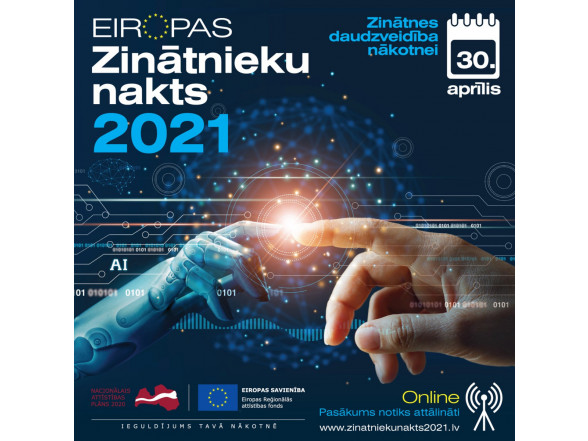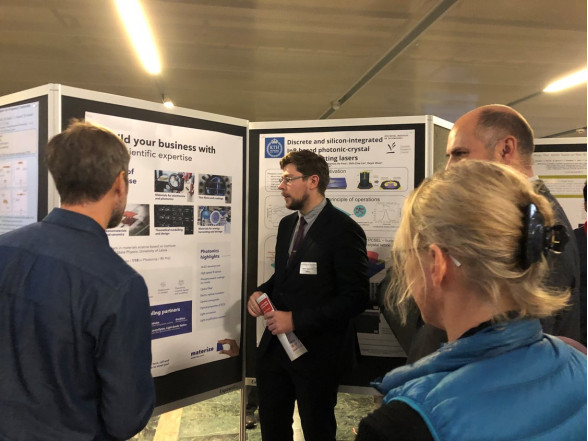On Friday, April 30, the annual European Researchers’ Night provided the opportunity to visit the ISSP UL virtually. The event was organized by University of Latvia in cooperation with 15 universities and scientific research institutes of Latvia. This year’s theme "Scientific Achievements for the Future" was integrated in almost 20 parallel live broadcasts offering around 200 different activities prepared by Latvian scientists for both children and adults.
This was the 15th European Researchers’ Night in Latvia and for the first time lectures, discussions, demonstrations, quizzes and other activities were taken online. Through the event website, zinatniekunakts2021.lv people from anywhere could participate. The event’s program was divided in three big sections – Little Researchers, Explorers and Big Science.
The smallest researchers visiting ISSP UL could observe exciting scientific experiments showing what luminescence and up-converted luminescence is; what batteries are made of and why they should be studied further. After the video broadcasts, viewers could ask scientists their questions.
For the biggest visitors, detailed stories about topical issues in the world’s and Latvia’s science were covered. ISSP UL organized a discussion “Latvia on the World Level - Production, Innovations and Science” with the participation of ISSP UL’s Deputy Director for Innovation Andris Anspoks, LIAA’s Director of Technology Department Lauma Muižniece and Buildit Latvia Acceleration Fund Managing Partner Matīss Neimanis.
The European Researchers’ Night is initiated by the European Commission and taking place simultaneously in more than 30 countries and 300 cities on the last Friday of September. Due to the restrictions related to Covid-19, the event planned for autumn 2020 was postponed to April 30, 2021 and took place online. The European Researchers’ Night is a Europe-wide public event funded by the Marie Skłodowska-Curie actions (MSCA). It brings researchers closer to the public to showcase the diversity of science and its impact on citizens’ daily lives, and to stimulate interest in research careers, especially amongst young people.



